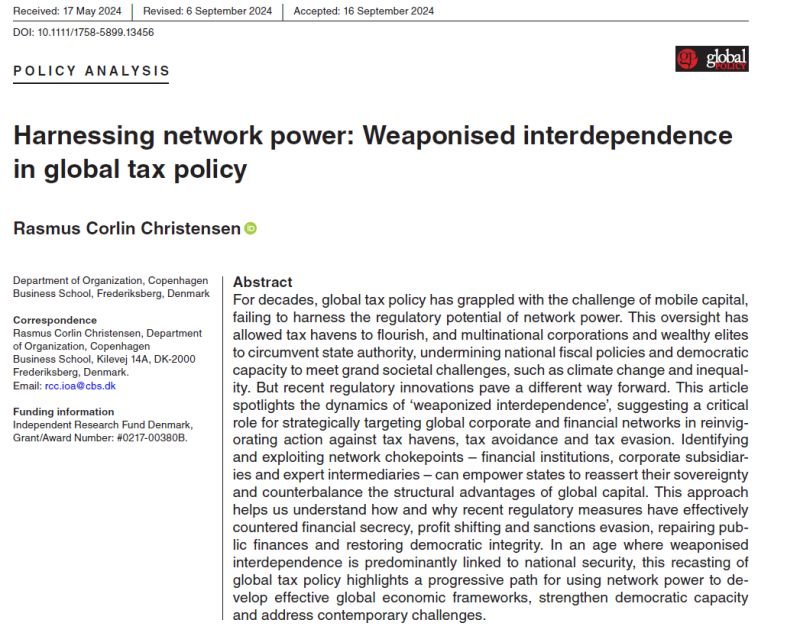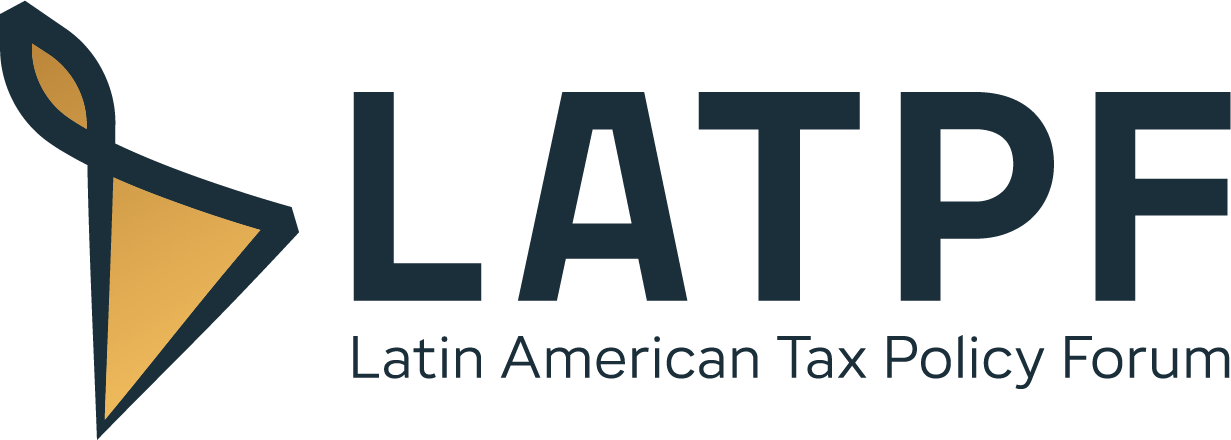🌎 Should countries be able to “weaponize” their “interdependence” on one another to effectuate global tax policy reform?
In a recent paper titled “Harnessing Network Power: Weaponized Interdependence in Global Tax Policy”, Rasmus Corlin Christensen argues that countries can exploit “asymmetric networks to coerce other actors” so that they refrain “from imposing outcomes that collectively put societies worse off”. He highlights that financial, legal, and physical networks (e.g., SWIFT) have few nodes with many connections, which provide policymakers with exploitable “chokepoints”. These can be controlled to help individual governments “[reclaim] fiscal authority, public revenue and democratic integrity, which had slipped away during the golden age of economic globalisation, and which remain crucial resources for governments to meet the grand societal challenges of today.”
Christensen’s paper is available here (https://bit.ly/4fncCvq). 💡 Here are some thoughts about the author’s remarks:
♻ The phrase “grand [social or societal] challenges” appears 4 times in the paper apart from its abstract. It is without question that some challenges (e.g., environmental protection) exceed the individual capabilities of any one State and must be addressed via cooperative efforts. It would be less tenable to suggest that the measures required to tackle these “grand” challenges affect countries in the same way.
💵 The author cites three examples of how “taxing through network power” overcame obstacles that so-called “light-touch approaches” failed to overcome. One is exchange of information against financial secrecy, the other is the OECD – OCDE Pillar 2 global minimum tax, and the third is penalizing “expert intermediaries” for helping clients avoid economic sanctions. Christensen does not delve into the policy attrition differences between the three, which may be an interesting point for readers to think about. For instance, it could be argued that there is a weak customary, treaty-based or constitutional argument – even in theory – that would protect individuals that wish to keep their financial records concealed from tax authorities. On the other hand, applying the UTPR to tax profits earned by sister companies with no nexus to the UTPR jurisdiction raises significant treaty-based and/or constitutional issues.
🛑 The lingering question for the local parliaments (and judges) of LAC countries, most of which are not members of the OECD, is whether they endorse weaponized interdependence as a policy diffusion tactic. Coercing countries to engage in tax reform has a political cost (which the paper acknowledges as “decoupling”), and that threatens the so-called state of interdependence that these new supranational initiatives rely on. To what extent are you amenable to having Executive Power representatives gathered in a (private or public) forum decide the “grand societal challenges” your individual tax policies should address?


